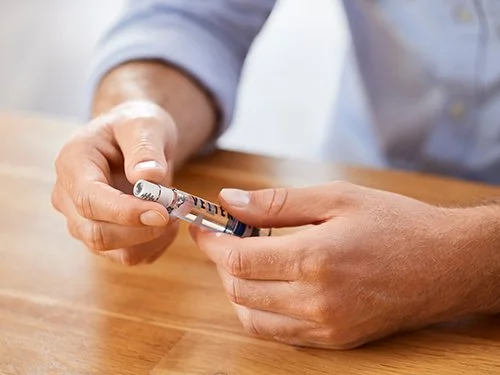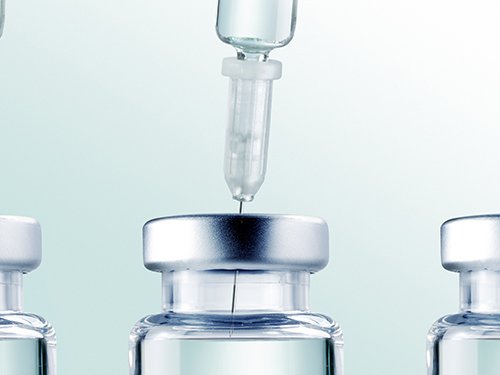
Navigating key news stories in pharma
Featured Stories
An exposure-driven, translational approach, linking early ADME with biomarker discovery, can help teams define the therapeutic window long before lead candidate nomination, according to Hong Wan from BioDuro.
The nanoparticle suspension formulation was found to mirror the reference product closely in terms of AUC, Cmax, and Tmax across a 21-day Göttingen minipig study performed by Charles River Laboratories.
The U.S. FDA has granted breakthrough therapy designation and Japan’s MHLW has designated orphan drug status to Sanofi’s BTK inhibitor, rilzabrutinib (Wayrilz), as a treatment for wAIHA.
An exposure-driven, translational approach, linking early ADME with biomarker discovery, can help teams define the therapeutic window long before lead candidate nomination, according to Hong Wan from BioDuro.
R&D
The nanoparticle suspension formulation was found to mirror the reference product closely in terms of AUC, Cmax, and Tmax across a 21-day Göttingen minipig study performed by Charles River Laboratories.
The company’s fixed-dose combination treatment demonstrated superior efficacy to its individual components and was shown to be safe and well-tolerated, consisted with other incretin and amylin-based therapies.
The company has advanced its next‑generation tamper‑evident syringe closure from design finalization to industrialization ahead of a planned 2027 launch to strengthen its position in prefilled drug‑delivery solutions.
A new RSV A-strain challenge agent has been introduced by SGS to enhance CHIM studies and accelerate vaccine development. The breakthrough aims to generate more accurate, data-driven insights into RSV infection and immune response.
Expansion
The USD 3.5 billion site reflects Lilly’s strategy to expand domestic capacity for glucagon-like peptide-1 (GLP‑1) drugs amid soaring demand and supply‑chain scrutiny.
The CDMO commits EUR 480 million to a new production facility on its Saarlouis site as it puts into action its long-term growth strategy to meet rising global biopharma demand.
The company is creating a new flagship manufacturing hub in North Carolina that will enable end-to-end manufacturing of its key medicines in one geographic location.
Backed by the expert team and cutting-edge resources of Re:Build Manufacturing, Ensorcell will offer innovative, high-quality scientific tools designed to accelerate discoveries and improve patient outcomes.
Dealmaking
With a looming patent cliff, continuing geopolitical pressures, and regionalized supply chains, there is a need for new creative deal structures and alternative financing to ensure successful M&A momentum.
A manufacturing collaboration between ten23 health and BD will support the commercialization of a wearable injector platform that offers a ready-to-use option for subcutaneous administration of high-dose biologics.
The agreement will allow AbbVie to develop, manufacture, and commercialize RemeGen’s novel PD-1/VEGF bispecific antibody in combination with its ADCs across multiple solid tumors.
Insilico Medicine has entered a multi‑year R&D collaboration with Servier to discover and develop novel AI‑designed oncology therapies. The deal will combine Insilico’s Pharma.AI platform with Servier’s global oncology development and commercialization capabilities.
Strategy
An exposure-driven, translational approach, linking early ADME with biomarker discovery, can help teams define the therapeutic window long before lead candidate nomination, according to Hong Wan from BioDuro.
In this deep-dive panel discussion moderated by The Pharma Navigator, several experts map out the future of excipients, addressing everything from climate-driven disruption to the need for greater industry collaboration.
As chronic diseases rise globally, the bio/pharma industry is pivoting toward increasingly complex molecules that demand more sophisticated delivery strategies, which must be considered early on in development.
The raised funds, totaling USD 40 million, will be used to accelerate the company’s growth and to advance its robotic platform, Constellation, which enables flexible, scalable cell therapy manufacturing.
Future Biopharma
Traditional antibody discovery is notoriously slow and resource-intensive, but a new wave of AI tools is enabling optimization of candidates prior to them reaching the clinic, accelerating development timelines.
Despite geopolitical uncertainties, regulatory reforms, and fluctuating capital expenditure, the bio/pharma industry is entering 2026 with renewed focus and confidence.
Facing a world of political risk and scientific hurdles, pharma companies are downsizing internal footprints to focus on portfolio management while leaning on CDMOs for specialized execution, explains Owen Murray from Bend Bioscience.
From managing high viscosity to preventing agglomeration, the industry is shifting toward larger-volume, device-compatible solutions that prioritize both drug stability and healthcare efficiency, points out Dr. Robert Lindner from SCHOTT Pharma.
Regulatory
The U.S. FDA has granted breakthrough therapy designation and Japan’s MHLW has designated orphan drug status to Sanofi’s BTK inhibitor, rilzabrutinib (Wayrilz), as a treatment for wAIHA.
According to Moderna, the reasoning for the refusal to review the BLA by the regulatory authority is inconsistent with previous feedback, leading the company to request a Type A meeting.
If the application is successful, the therapy will become the first-line treatment for patients with unresectable or metastatic TNBC who are not candidates for PD-1/PD-L1 inhibitor therapy.
The company is advancing its lead KV7 potassium channel modulator azetukalner through multiple Phase III trials in epilepsy and mood disorders, and planning its transition to commercial-stage growth.
Upcoming Events
The 7th Glioblastoma Drug Development Summit is your opportunity to accelerate innovation and bring life-changing therapies closer to those who need them most.
Across pharma, biotech, F&B, chemicals, and FMCG, R&D leaders are modernising complex lab environments, integrating new LIMS with legacy systems, ensuring seamless data flow, and inspiring teams to embrace change. At SmartLab Exchange Europe, they go beyond vision to implementation.
The 16th World ADC London is the week for anyone working in or interested to learn about bioconjugates. Leverage cutting-edge R&D, development strategy, and unparalleled networking opportunities to harness ADC innovation and maximise the therapeutic index of your ADCs.

























